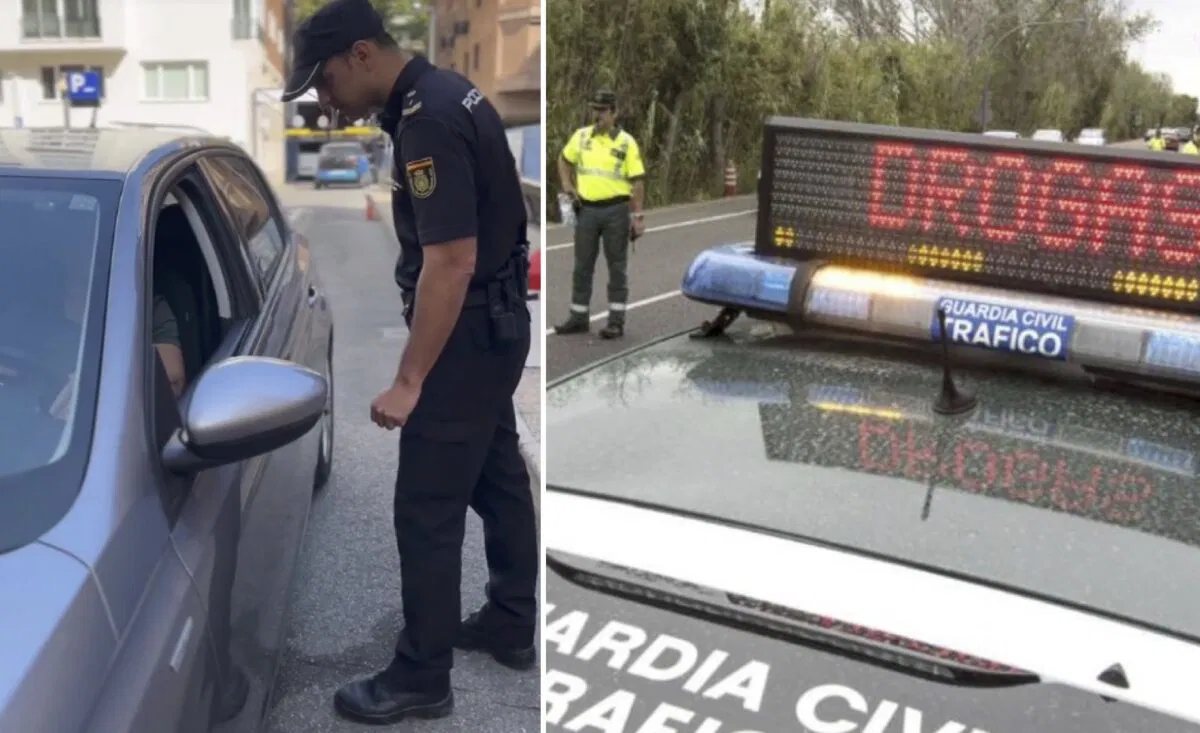By Adam Woodward
Spain has permitted the consumption of drugs in parked private vehicles, in a bizarre twist of the law. The turn of events has come about using the controversial “Ley Mordaza”, or ‘gag law’, which has just been in effect for the last 10 years.
The strongly criticised legislation was meant to protect the public from anti-social behaviour but exempted private spaces, such as one’s own home. However, following the recent arrest of a man found to be taking drugs in his parked car, the definition of private space has broadened to mean parked vehicles as well.
In a striking case, a man tested positive for substances in a drug test carried out by the Guardia Civil and inadvertently revealed the legal loophole regarding place of the action. The Spanish government, following a May 2025 directive from the Ministry of the Interior led by Fernando Grande-Marlaska, has upheld a policy that exempts individuals from fines for consuming drugs inside stationary private vehicles. This decision stems from the fact that such behaviour is not classified as an offence under the Organic Law 4/2015 on Citizen Security, or the “Ley Mordaza”.
The policy, outlined in Instruction 7/2025 from the Secretary of State for Security, was clarified in response to enquiries from the Popular Party (PP). The Socialist Party (PSOE) explained that recent judicial rulings have determined that drug consumption in private vehicles does not violate Article 36.16 of the Citizen Security Law, as it occurs in a personal space with a degree of protected privacy.
Court’s decision “weakens police authority”
However, the decision has drawn sharp criticism from the National Police union and Guardia Civil associations, who argue that it “normalises drug use” and could “weaken police authority”. In response, the Ministry of the Interior stressed that the policy leaves room for discretion, shifting the responsibility to the security forces, stating, “It is up to prudent judgement whether this action constitutes a serious offence. It is a private space protected with a certain degree of privacy.” This ‘discretion’ opens up police to potential legal action if they were to take action against individuals using parked cars for drug consumption.
The ministry was clear, however, that drug use in a moving vehicle remains fully punishable and could constitute a crime under the Penal Code with fines ranging from €601 to €30,000 for an offence against public health or road safety. This distinction shows the legal boundary between private, stationary vehicles and those in transit, where stricter regulations apply.
Under Spanish law, one cannot be under the influence of drugs in public spaces, such as walking in the street, as much as not driving under the influence under, ironically, the same “Ley Mordaza”.
Bizarre loophole restricts Police and Guardia Civil enforcing law
The National Police union says that the loophole seriously restricts their ability to enforce the law. They view the decision as a “planned surrender” rather than a legal oversight, expressing concern that it could contribute to Spain’s path toward becoming a “narco-state”. The union rejects the argument that a private vehicle is a protected private space under the Organic Law 4/2015 on Citizen Security.
No explanation has been given by the Ministry of the Interior of what happens when the supposed drug user leaves the parked vehicle.
